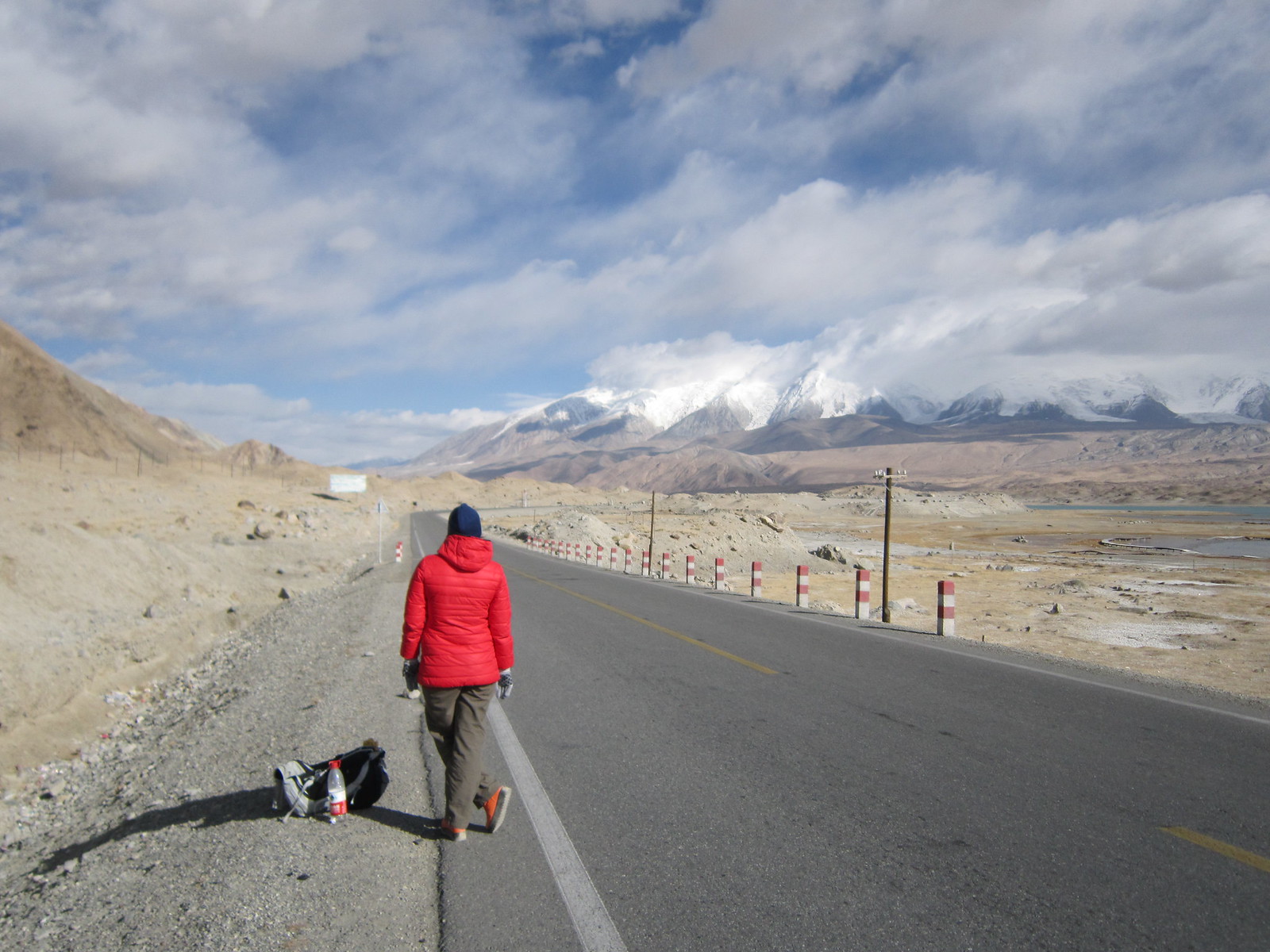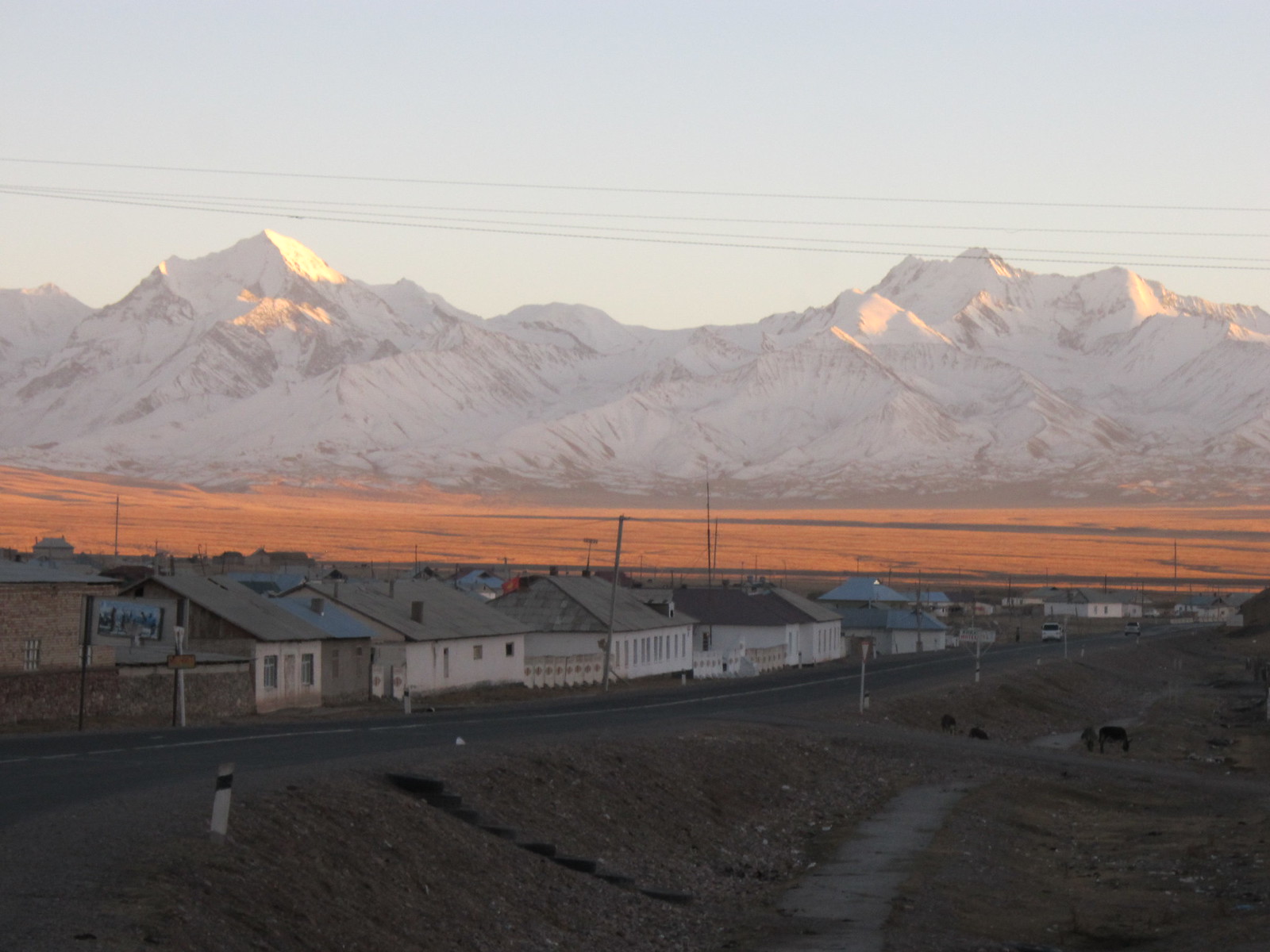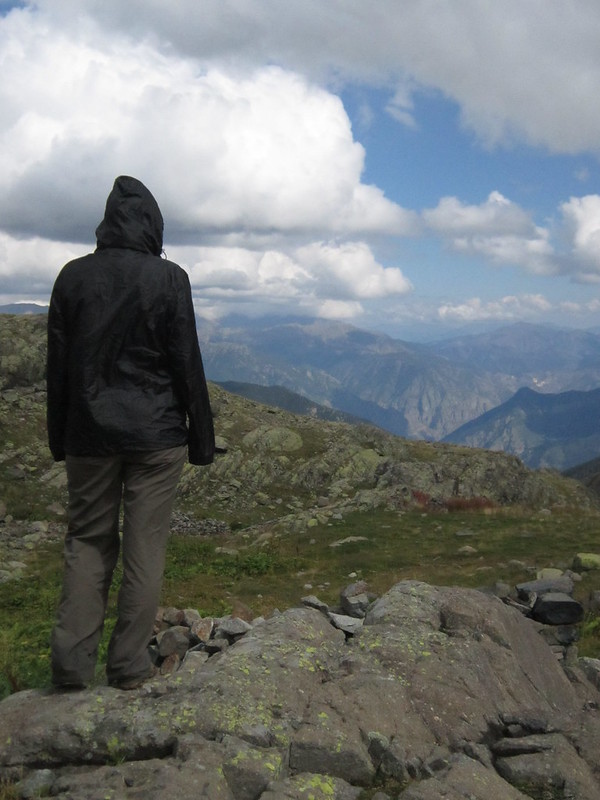It turns out hanging around at 3600m gives you a headache and means you don’t sleep very well. That, and the fact that the stove in our yurt ran out of fuel about 2am, made for a bit of a chilly and uncomfortable night.
Lake Karakul on the Karakoram Highway didn’t really live up to expectations: The lake itself and the snowy mountains behind were picturesque, but the only yurt still pitched at this time of year that wasn’t a concrete pretend version was 6 feet from the main road and a few metres from a hotel playing loud dance music. Nevertheless, this would have to do as our ‘yurt experience’. Perhaps by way of protest, but more likely due to some ‘dodgy tofu’, Claire was secretly sick in the nomad’s washing up bowl.
Cold and groggy in the morning, we crawled out from piles of blankets and stood hopefully on the road outside, waiting for a bus, car or friendly truck driver. We were heading to Tashkurgan, the last Chinese town before the Pakistan border and the infamous Khunjerab Pass. Khunjerab means ‘valley of blood’ and it’s the highest road in the world.
Eventually a truck stopped and drove us 20 minutes up the road until it turned off to a quarry. Now with no yurt, building or traffic between us and the distant horizon we began to wonder if we would have been better staying put. It was 85km to Taskurgan and about 15km back to the nearest human habitation – a long walk with a backpack and a biting head wind.
Like all episodes of ‘Ice Road Truckers’ however, the impending disaster and certain death was never realised. With two further lifts we were in Tashkurgan before dark – relieved that we seemed to be in an crap Channel 5 documentary where nothing really happens.
Similar to much of the China we’d seen, Tashkurgan was half building site and there seemed to be more construction going on than was warranted by the size of the current population. We asked around for buses to Pakistan, got told to come back tomorrow, had a heated argument over what time it was (not such a simple question in a place where so many time zones converge), stuffed ourselves with rice and more tofu and went to bed.
Tomorrow we’d attempt The Pass.


